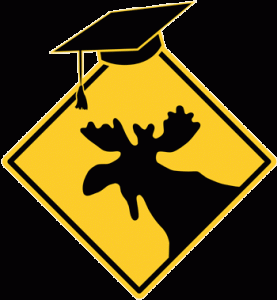Das Nachwuchsforum (NWF) der Gesellschaft für Kanada-Studien e.V. sucht junge, engagierte Kanadist_innen, die sich aktiv im NWF-Leitungsteam einbringen und die Förderung von Nachwuchswissenschaftler_innen im Rahmen einer interdisziplinären Kanadistik unterstützen möchten.
Die Leitung des NWFs setzt sich aus zwei Teams zusammen, die jeweils versetzt für zwei Jahre amtieren. Turnusgemäß wird das Team Potsdam-Kanada auf der nächsten Jahrestagung der GKS (12. – 14. Feb 2016 in Grainau) sein Amt abgeben. Auf der Jahrestagung wird außerdem traditionell auch das zukünftige Team vorgestellt, das dann gemeinsam mit Team Wien die Leitung des Nachwuchsforums übernehmen wird. Ausführlichere Informationen zum Nachwuchsforum und Team Wien findet man auf der NWF-Homepage.
Das Leitungsteam ist für die Organisation des jährlichen Nachwuchspanels auf der GKS-Jahrestagung sowie für die Ausrichtung einer Graudiertentagung zuständig. In das Aufgabengebiet fällt außerdem die Vernetzung im deutschsprachigen Raum mit anderen Partnerorganisationen, akademischen Einrichtungen, Kanadazentren und den Vertretungen der Regierungen von Kanada und Québec. Dies geschieht u.a. durch die Aktualisierung der Webseite, das Erstellen eines monatlichen Newsletters mit Informationen zu Konferenzen, Stipendien, Jobangeboten und weiteren Neuigkeiten im Bereich der Kanada-Studien sowie die Repräsentanz des NWFs in Social Media Plattformen (Facebook und Twitter). Die Arbeit im NWF verschafft einen aktiven Einblick in die Organisation von wissenschaftlichen Konferenzen, die Drittmittelbeschaffung, den Umgang mit neuen Medien und das Vernetzen der im deutschsprachigen Raum angesiedelten Kanadistik.
Besonders im Hinblick auf die Ausrichtung und Finanzierung der jährlichen Graduiertentagung hat sich die institutionelle Anbindung des Teams an eine akademische Einrichtung bewährt. Bewerber_innen sollten über gute Kenntnisse in mindestens einer der beiden offiziellen Amtssprachen Kanadas verfügen; es ist von Vorteil, wenn im Team sowohl die englische als auch französische Sprache repräsentiert werden. Bewerbungen von interdisziplinär besetzten Teams, die ein möglichst breites Spektrum der Sektionen der GKS vertreten, sind besonders willkommen; Einzelpersonen, die wir ausdrücklich zu einer Bewerbung ermutigen, werden jedoch gleichermaßen berücksichtigt.
Das Team Wien freut sich über zahlreiche Einsendungen! Bewerbungen sind bis zum 15. Dezember 2015 an die E-Mailadresse des NWFs möglich und bestehen aus einem Motivationsschreiben (max. 2 Seiten) und dem Lebenslauf der Interessierten. Alle Bewerber_innen werden bis Anfang Januar 2016 über die Entscheidung informiert.

